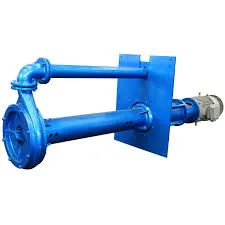Arabic
- Afrikaans
- Albanian
- Amharic
- Arabic
- Armenian
- Azerbaijani
- Basque
- Belarusian
- Bengali
- Bosnian
- Bulgarian
- Catalan
- Cebuano
- Corsican
- Croatian
- Czech
- Danish
- Dutch
- English
- Esperanto
- Estonian
- Finnish
- French
- Frisian
- Galician
- Georgian
- German
- Greek
- Gujarati
- Haitian Creole
- hausa
- hawaiian
- Hebrew
- Hindi
- Miao
- Hungarian
- Icelandic
- igbo
- Indonesian
- irish
- Italian
- Japanese
- Javanese
- Kannada
- kazakh
- Khmer
- Rwandese
- Korean
- Kurdish
- Kyrgyz
- Lao
- Latin
- Latvian
- Lithuanian
- Luxembourgish
- Macedonian
- Malgashi
- Malay
- Malayalam
- Maltese
- Maori
- Marathi
- Mongolian
- Myanmar
- Nepali
- Norwegian
- Norwegian
- Occitan
- Pashto
- Persian
- Polish
- Portuguese
- Punjabi
- Romanian
- Russian
- Samoan
- Scottish Gaelic
- Serbian
- Sesotho
- Shona
- Sindhi
- Sinhala
- Slovak
- Slovenian
- Somali
- Spanish
- Sundanese
- Swahili
- Swedish
- Tagalog
- Tajik
- Tamil
- Tatar
- Telugu
- Thai
- Turkish
- Turkmen
- Ukrainian
- Urdu
- Uighur
- Uzbek
- Vietnamese
- Welsh
- Bantu
- Yiddish
- Yoruba
- Zulu
Telephone: +86 13120555503
Email: frank@cypump.com
ديسمبر . 01, 2024 12:44 Back to list
Ejector Pumps and Their Importance in Modern Fluid Handling Systems
Understanding Ejector Pumps Mechanisms and Applications
Ejector pumps, commonly referred to as ejectors or jet pumps, are devices designed to lift fluids from lower to higher elevations using the principle of jet propulsion. They are especially significant in applications where traditional mechanical pumps may not be suitable due to their operational challenges or specific environmental conditions. This article delves into the working mechanisms of ejector pumps, their applications, and the advantages they offer.
The Mechanism of Ejector Pumps
At the core of an ejector pump is the principle of fluid dynamics, particularly the Venturi effect. The device typically comprises three primary components a nozzle, a mixing chamber, and a diffuser. Here’s how it operates
1. Nozzle Pressurized fluid is directed through a nozzle, causing it to accelerate and decrease in pressure as it passes through. This rapid movement generates a low-pressure area that creates a suction effect.
2. Mixing Chamber The low pressure created by the fast-moving fluid allows surrounding liquid (often water or wastewater) to be drawn into the mixing chamber. The design ensures that both fluids mix effectively in this space.
3. Diffuser After the fluids mix, they enter the diffuser section, where the flow slows down, and pressure increases. This process helps in pushing the combined fluid mixture to the desired elevation or discharge location.
Ejector pumps can handle a variety of fluids, including water, slurries, and waste fluids, making them extremely versatile in various applications.
Applications of Ejector Pumps
Ejector pumps are utilized across a wide range of industries and applications. Some common uses include
- Water Well Pumping In rural regions where electricity may be scarce or unavailable, ejector pumps are often used for well water extraction. Their simplicity and reliability make them an excellent choice for these situations.
- Sewage and Wastewater Management Ejectors are used in sewage treatment plants and municipal waste management systems to lift and transfer wastewater efficiently. They are increasingly preferred due to their ability to handle solid particles and minimize clogging.
ejector pumps

- Chemical Processes In chemical manufacturing, ejector pumps can be used to transport or mix corrosive substances with minimal wear and tear on the equipment
.- Mining Operations Ejector pumps can remove water from mines effectively, ensuring a safer working environment.
- Irrigation Systems They are also implemented in agricultural settings to help manage irrigation efficiently, drawing water from reservoirs or underground sources.
Advantages of Ejector Pumps
The popularity of ejector pumps stems from several noteworthy advantages
1. Simplicity Ejector pumps have fewer moving parts compared to traditional mechanical pumps, which translates into reduced maintenance requirements and operational costs.
2. Versatility They can handle various types of fluids and particles, making them suitable for diverse applications—from clean water to sludgy waste.
3. Self-Priming Capability Ejector pumps can self-prime, meaning they can start pumping without needing to be filled with fluid beforehand, enhancing their usability.
4. Operational Reliability With a lack of mechanical seals and bearings, ejector pumps are less prone to wear and tear, ensuring a longer operational lifespan and reliable performance.
5. Energy Efficiency Since ejector pumps use high-pressure fluid to create suction, they often require less energy compared to traditional pump systems, particularly in applications where gravity assists fluid movement.
Conclusion
Ejector pumps represent a smart and efficient alternative for fluid transportation across various industries. Their innovative design, coupled with numerous benefits, ensures their continued relevance in modern engineering and environmental management. As industries evolve and seek more effective pumping solutions, ejector pumps will undoubtedly play a pivotal role in those advancements. By understanding their mechanisms and applications, stakeholders can better leverage ejector technology to meet their specific needs.
-
ISG Series Vertical Pipeline Pump - Chi Yuan Pumps Co., LTD.|High Efficiency, Energy Saving, Low Noise
NewsJul.30,2025
-
ISG Series Vertical Pipeline Pump- Chi Yuan Pumps|High Efficiency&Low Noise
NewsJul.30,2025
-
ISG Series Vertical Pipeline Pump-Chi Yuan Pumps Co., LTD.|High Efficiency&Energy Conservation
NewsJul.30,2025
-
ISG Series Vertical Pipeline Pump - Chi Yuan Pumps Co., LTD.|Advanced Hydraulic Design&Energy-Efficient Solutions
NewsJul.30,2025
-
ISG Series Vertical Pipeline Pump - Chi Yuan Pumps Co., LTD.
NewsJul.30,2025
-
ISG Series Vertical Pipeline Pump - Chi Yuan Pumps Co., LTD.|energy-efficient fluid handling&industrial durability
NewsJul.30,2025










